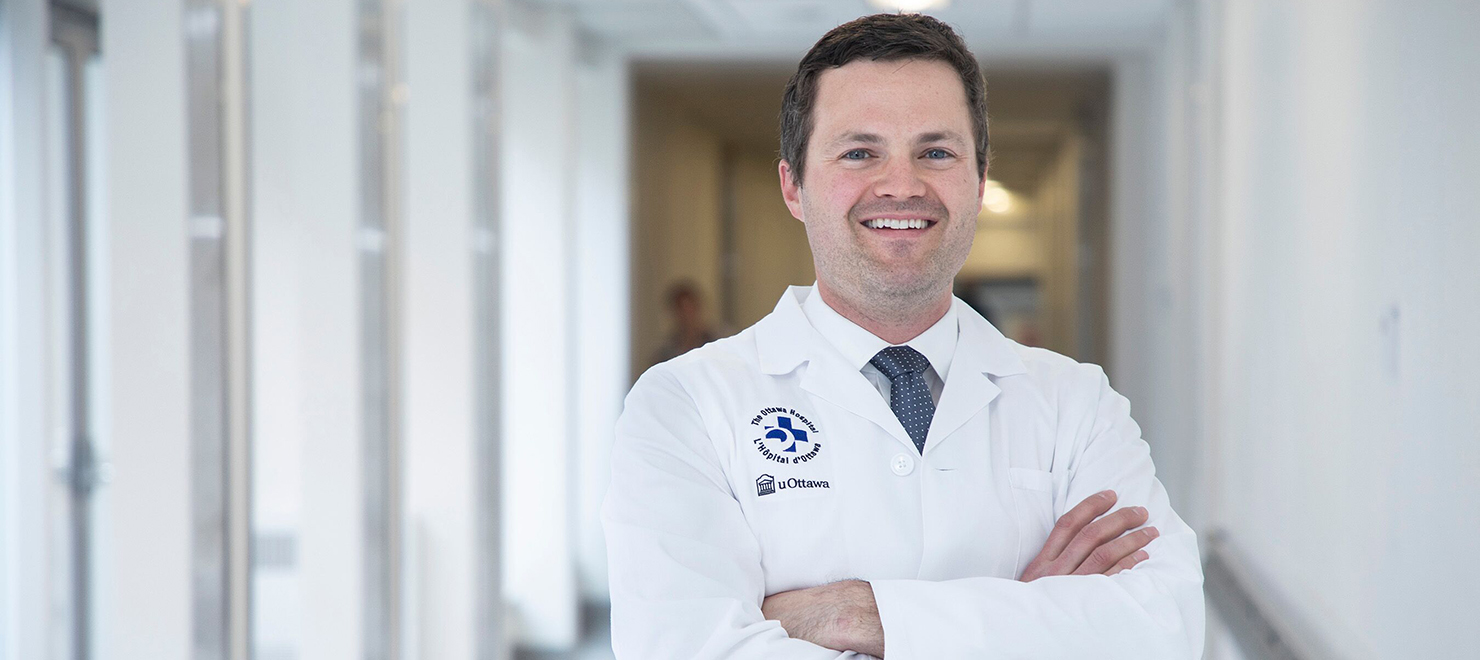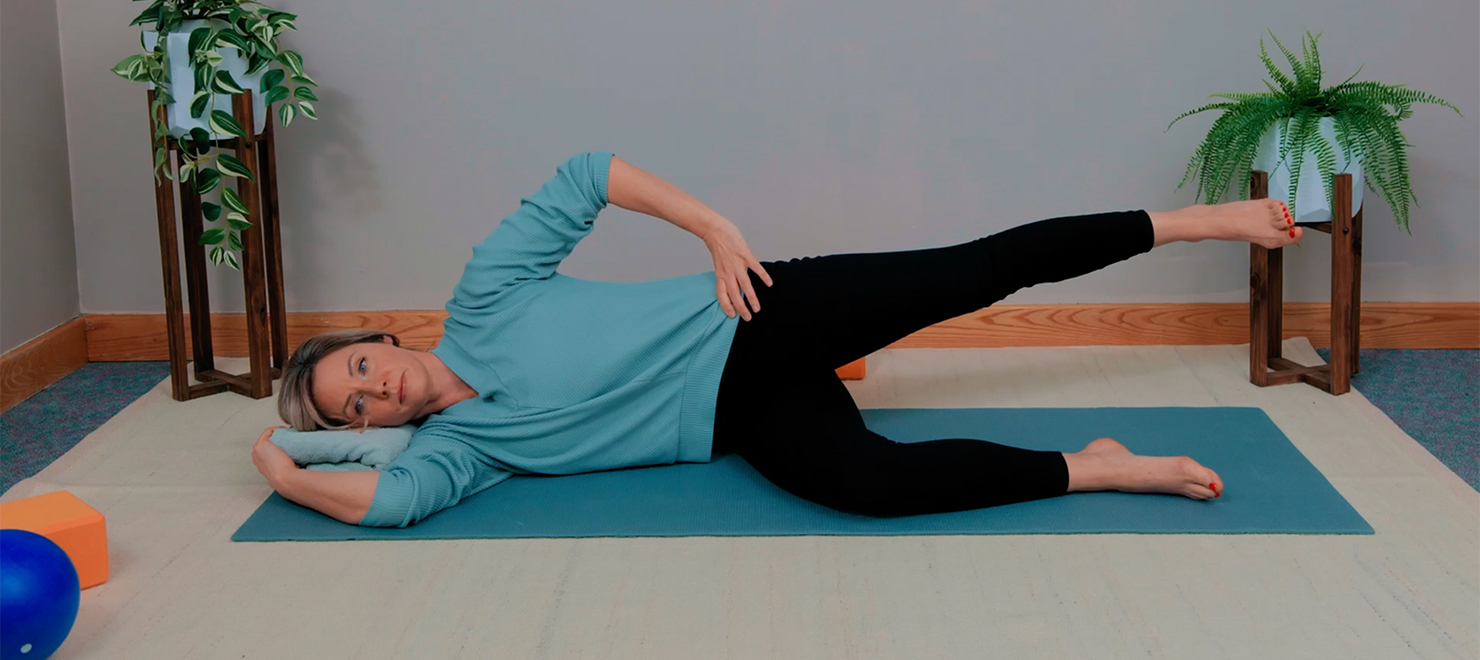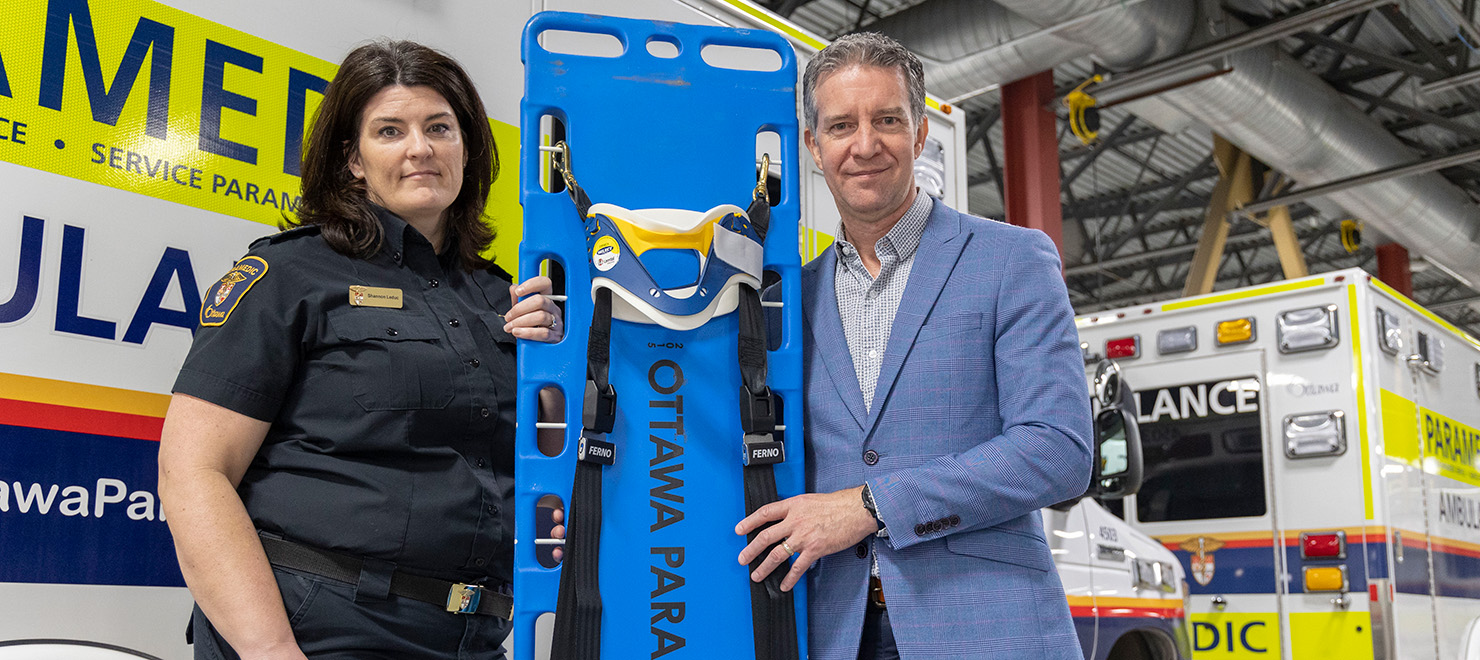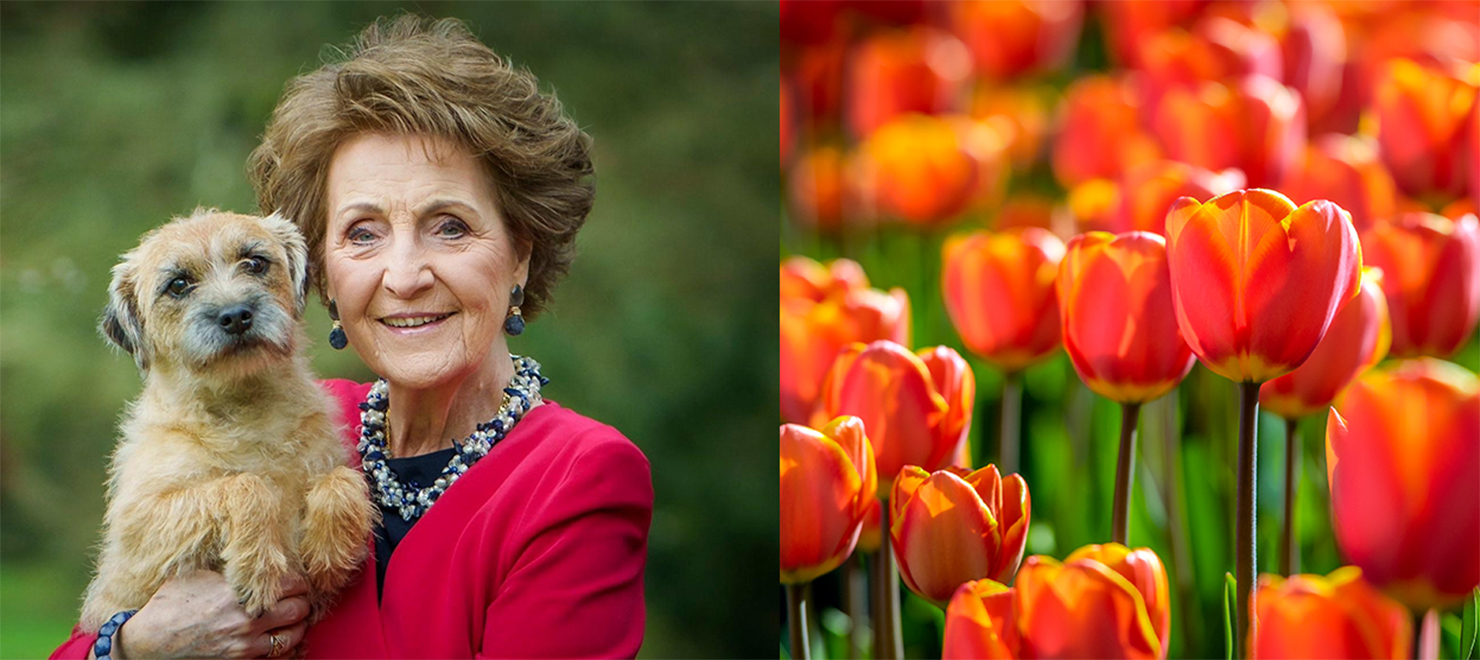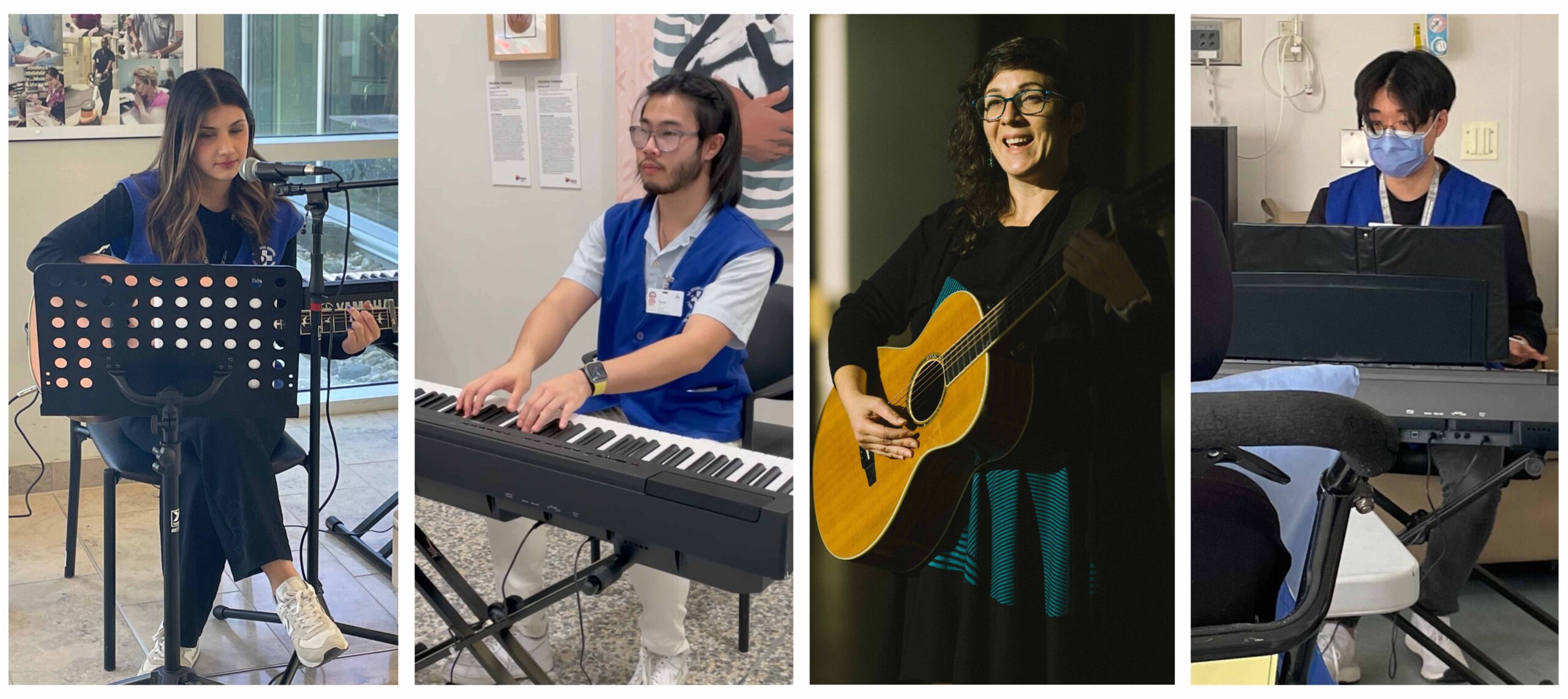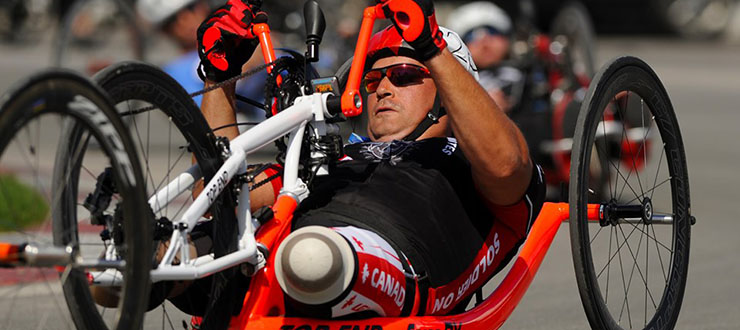
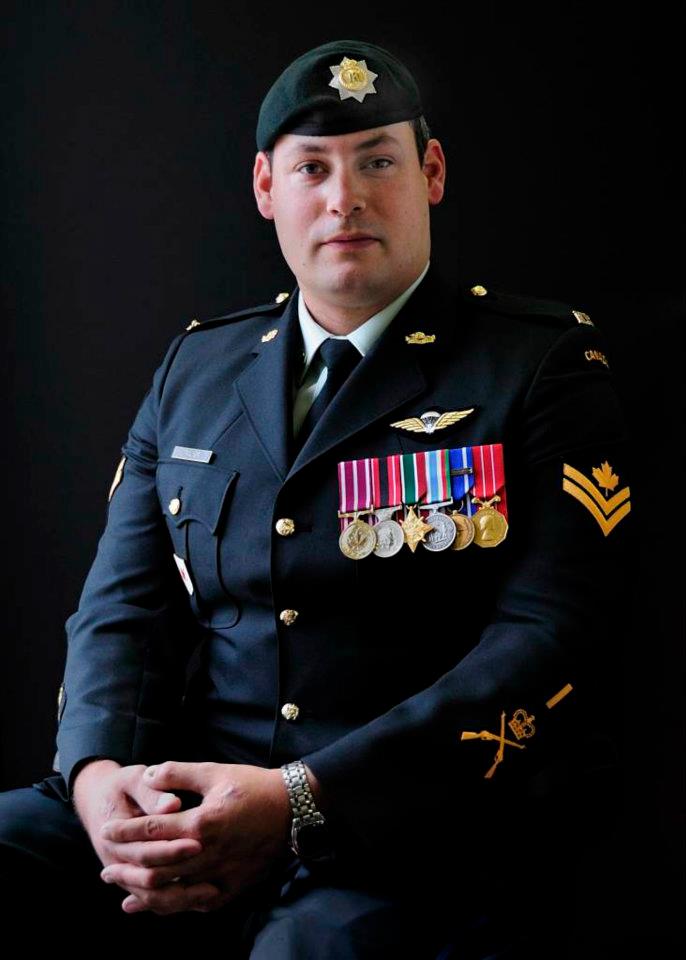
A soldier’s life can change in an instant. For Mike Trauner, that instant happened on December 5, 2008.
Mike, a Master Corporal in the Canadian Light Infantry, was on patrol in Afghanistan when an improvised explosive device went off. The force of the explosion severed both his legs, and severely injured both his arms and hands. His hearing was damaged, and he had shrapnel in his eyes.
Mike was first rushed to a military hospital in Germany, and then sent to the Trauma Centre at the Civic Campus. Once he was ready, he was transferred to The Ottawa Hospital Rehabilitation Centre to begin his long journey of ‘finding his new normal.’
“I remember when I went in the Rehabilitation Centre. It was very, very heartwarming and welcoming,” Mike recalled.
But the road ahead was paved with months of grueling hard work.
“My days were full,” he said. “It was like a full workday.”
Mike’s days were full of a combination of physiotherapy, occupational therapy, psychological support, and appointments with prosthetists who helped him get fitted for and begin to use his prosthetic legs.
I’d give him a challenge, and he’d take it on.
Marie Andrée Paquin, a senior physiotherapist at The Ottawa Hospital Rehabilitation Centre, remembers Mike’s willingness to take on new challenges.
“Mike was a real typical soldier,” said Paquin. “I’d give him a challenge, and he’d take it on. I remember when he first got here, I showed him an exercise he could do in bed, and Mike said to me ‘ok, how many do you want me to do? One hundred?’ He was always pushing the limits.”
Mike’s positive attitude certainly helped him overcome many physical challenges, but some of his perceptions also had to change.
“When I first got [to the Rehabilitation Centre], I really had no idea of what an amputee could do,” Mike said. “I could have followed the myth that you get your prosthetics and you can walk instantaneously and you’re miraculously healed, or that you’re going to be stuck in a wheelchair for the rest of your life and you’re not really going to be able to do anything for the rest of your life.” But with the help of Paquin and many others on his care team, Mike began to discover his “new normal.”
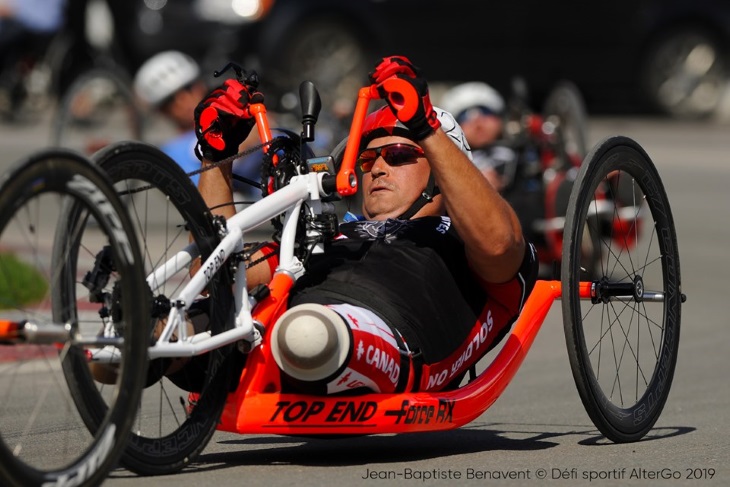
“Most of society, even in Canada, thinks that once you have a disability, that puts you at a severe disadvantage,” said Mike. “You can no longer do things that normal people can do. And you really do go into the hospital believing that – until people at the hospital tell you otherwise and show you otherwise – that you can actually do these things.”.
They showed me what was actually possible.
Paquin tailored a rehabilitation plan that incorporated Mike’s interests, catered to his personality and helped him work toward his rehabilitation goals. They went on long walks carrying heavy backpacks to simulate an element of the army fitness test at the time. They went snowshoeing. They travelled to San Antonio Texas to compete in a mini triathlon for injured soldiers.
It’s this individualized approach that makes the team at the Rehabilitation Centre so special.
“I think we’re very patient-centred,” said Paquin. “We adapt to the needs of each patient. The whole team is focused on where our patients can go physically and what they can achieve.”
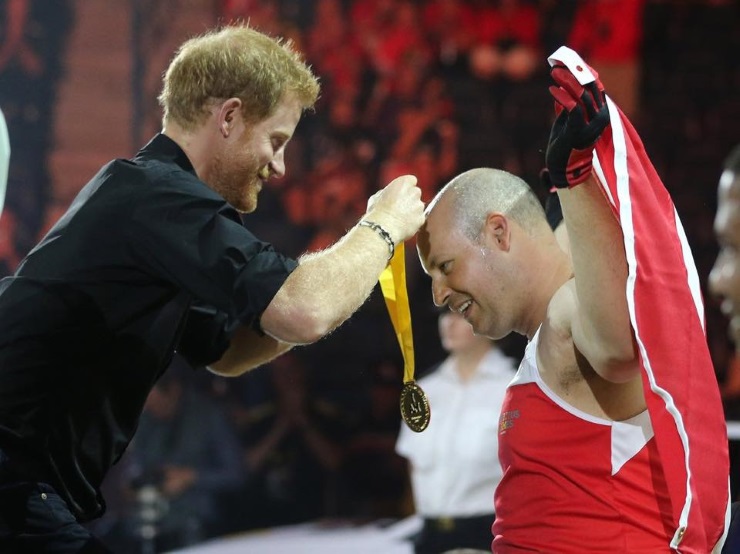
“I can’t really see myself going anywhere else,” Mike said. “I think the Rehabilitation Centre really gave me everything that I need. Everything they did was completely tailored toward me. So I’m really, really glad that they worked extra hard and put in the diligence to come up with this plan and this program just for me.
Mike’s competitive spirit had been reawakened during his stay as an inpatient there.
“The Rehabilitation Centre put me into contact with a couple of sports programs, and they really reinforced the fact that they wanted me to go out and try these sports,” he said.
Since his time as an impatient at The Ottawa Hospital Rehabilitation Centre, Mike has tried many adaptive sports, including sledge hockey, rowing and handcycling. In 2017, he competed for Canada at the Invictus Games and has since become a top contender at many international athletic competitions.
Now, he has his sights set on the 2020 Paralympic Games in Tokyo, Japan. He would compete in the sport of paracanoe.
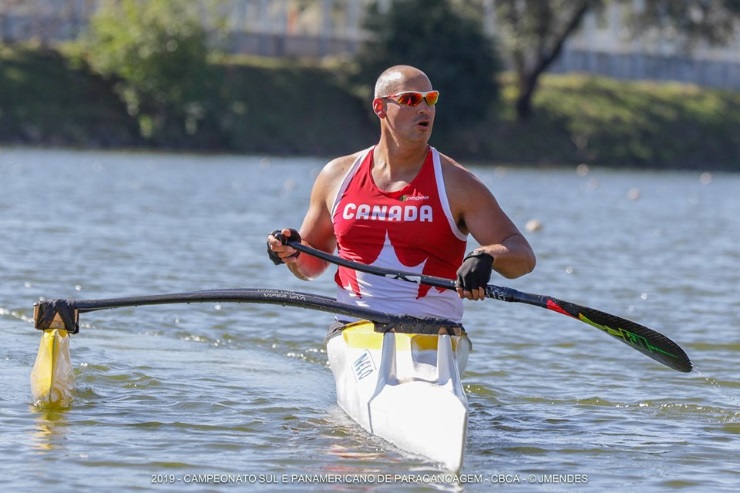
As Mike continues his impressive rise toward the top of amateur sport, Paquin reflects on her role in helping Mike and many other patients find their ‘new normal.’
“I have a huge sense of pride to know that I was there to guide them,” she said. “I did not lift those 50-pound dumbbells, but I was there to listen to what they needed and try to figure out, ‘ok, how are we going to get there?’ I’m always thinking ‘what’s next?’ I’m proud that I gave them the confidence to try.”
As Mike continues to make and meet challenges, perhaps these words sum up his experience at the Rehabilitation Centre the best:
“They showed me what was possible,” he said.

Support patient care and research at
The Ottawa Hospital
You might also like…
Do you have a surgery coming up? Here are five “prehab” tips to help you recover faster
You’ve probably heard about rehabilitation, but what about “prehabilitation”? Prehab is all about getting your body and mind in top shape before surgery so you can enjoy a smoother, quicker recovery. Discover five essential prehab strategies from researcher Dr. Daniel McIsaac.
A guide to mindful movement for pain management
Are you seeking relief from pain, discomfort or stress? In these four videos, Physiotherapist Cristin Kargus guides you through gentle, mindful movements to help you reconnect with your body.
Does this backboard look comfortable to you?
Imagine this: You’re flat on your back, strapped tight to a rigid backboard, unable to move at all. Fortunately, this is no longer the reality for most low-risk trauma patients when they’re brought to hospital in our province. Find out how researchers at The Ottawa Hospital teamed up with paramedics across Ontario to make the journey a lot more comfortable.
The place to be: The Ottawa Hospital recognized as one of Canada’s most admired corporate cultures
The Ottawa Hospital (TOH) has been named one of Canada’s most admired corporate cultures. Guided by compassion and commitment to patient care, TOH has developed a workplace culture that inspires confidence and trust in our employees, patients and family members.
Watch: Princess Margriet of the Netherlands sent us this lovely video message for the Civic’s 100th anniversary
If you’ve ever wondered why tulips are so important to our city, the answer involves a world war, a royal family and The Ottawa Hospital’s Civic Campus. In this special video message, Her Royal Highness Princess Margriet of the Netherlands shares why the tulip is a special symbol of the endearing friendship between her country and Canada.
A volunteer program that taps into the power of music
Studies have shown that music can benefit the body, mind, relationships and community. Musical Moments is a program where volunteers play live music to support positive outcomes for patients, visitors and staff.


 To reset, hold the Ctrl key, then press 0.
To reset, hold the Ctrl key, then press 0.
